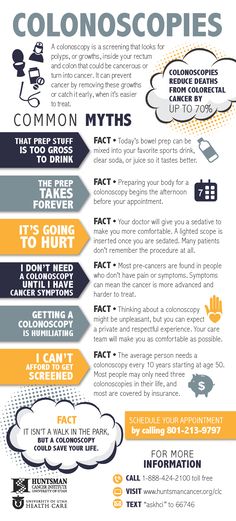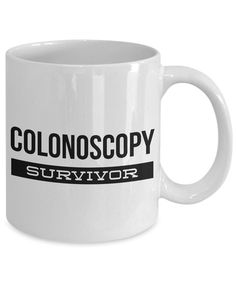Efforts of preventing and curing cancer have made great strides. Prevention  is always better than cure. A colonoscopy is one way to prevent cancer. This article is all about colonoscopy.
is always better than cure. A colonoscopy is one way to prevent cancer. This article is all about colonoscopy.
What is a Colonoscopy?
A colonoscopy is an endoscopic examination of the lower intestine also known as the colon. The colon is the lowest portion of the gastrointestinal tract that takes in food, absorbs nutrients, and disposes of waste. The colon is attached to the anus through the rectum. The anus is the opening in the body where feces are expelled. For more information on the digestive tract, see the article The Important Digestive System.
What is the purpose of a colonoscopy
A colonoscopy is performed as a screening for colon cancer but it can also be done as for other problems. The screening can aid a physician:
- monitor for signs of cancers and other problems
- determine the source of unexplained changes in bowel habits
- appraise symptoms of pain or bleeding located in the abdominal area
- find the reason(s) for weight loss, chronic constipation, or diarrhea
How is a colonoscopy performed
It isn’t a very complicated procedure. During the procedure, the patient lies on their side on a padded examination table. The physician positions the patient with their knees close to the chest to get a better angle of the colon.
While on the side and sedated, the physician will guide a flexible, lighted tube called a colonoscope into the anus. Slowly and gently, it will be guided up through the rectum and into the colon. A camera on the end of the colonoscope transmits images to a monitor that the doctor will be observing.
Once the scope is positioned, the physician will inflate the colon using

carbon dioxide gas to yield a better view.
The doctor may remove polyps or a tissue sample for biopsy during this procedure .
The entire procedure takes about 20-40 minutes.
After the procedure is completed, it will take about an hour for the sedative wear off. The patient will be advised not to drive for the next 24 hours, until the full effects fade.
In addition, there will likely be some gas and bloating from the gas the doctor placed into the colon. Time must be allowed for it to get out of the system. If it continues for days after, it could mean there’s a problem and the doctor should be contacted.
Additionally, a small amount of blood in the stool after the procedure is normal. However, the doctor should be called if the patient continues to pass blood or blood clots, experience abdominal pain, or have a fever over 100°F.
If the physician removes tissue or a polyp during a biopsy, it will be sent to a laboratory for testing. The physician will notify the patient the results when they’re ready, which is generally within a few days.
Who should have a colonoscopy
Anyone over the age of 50 who is at average risk of colon cancer should get a colonoscopy once every 10 years. If an individual is at an increased risk, they may need more frequent procedures. The American College of surgeons estimates that between 76 and 90 percent of colon cancer can be prevented through colonoscopy screening.
A colonoscopy is aimed and designed to detect pre-cancerous polyps with the goal of actually removing these polyps before they can turn into cancer – this is how a colonoscopy can actually prevent colon cancer.
Colorectal cancer is the most preventable cancer, yet it is the third leading cancer-related cause of death in our country? The answer is : not enough individuals are having the colonoscopies. According to Dr. Feingold, Associate Professor of Clinical Surgery, Division of Colorectal Surgery at New York-Presbyterian/Columbia, “Almost all patients who get colorectal cancer do so because they have failed to get screenings. Almost all the colorectal cancers would be prevented if people had their recommended screenings.” Again, prevention is better than cure!
What are the risks of a colonoscopy
In view of the fact that a colonoscopy is a routine procedure, there are usually few lasting effects from this procedure. In the considerable majority of cases, the benefits of detecting problems and initiation of treatment far outweigh the risks of complications from a colonoscopy.
However, some rare complications include:
- a reaction to the sedative or anesthesia
- bleeding from a biopsy site if a biopsy was done
- a tear in the rectal wall or colon
Again, these complications are rare.
Reasons for not getting a colonoscopy
Below are some of the excuses for not getting a colonoscopy.
None of my family members has had colorectal cancer, so I don’t need a screening.
- – Fact: In the US, about 150,000 develop colorectal cancer each year, making it the third most common cancer-related cause of death in the country. Additionally, 85% of these patients have no family history of the disease.
My insurance won’t pay for a colonoscopy.
- – Fact: Practically all insurance plans do pay for screening at the correct time frames. For people at average risk, with no known risk factors, the initial screening should occur at age 50, and then every 10 years thereafter, if the previous results were normal.
It takes too long to get an appointment.
- – Fact: In some cases it may take a while to get scheduled but to not get colon cancer is worth the wait. This really tends to be a product of procrastination.
The preparation is taxing. The solution you have to drink tastes awful, and I don’t want to have to spend the evening running to the bathroom.
- – Fact: There’s no denying that! But there has been an improvement. Today, patients are given just two (2) liters in what is called a Low Volume Preparation – this is half of what was used in the past to clean us out before a colonoscopy.
- – Also, it’s better to run to the bathroom for one evening than to run to the hospital weekly for numerous chemo treatments.
Colorectal cancer is so unusual. Why do we have to go looking for it?
- – Fact: Well, if you don’t look for it you won’t find it but that doesn’t mean it isn’t there. Remember almost all colorectal cancers begin as a tiny polyp. If a polyp is found during colonoscopy, it will be removed and this prevents the polyp from ever turning into cancer. But if a colonoscopy isn’t performed in the first place, then you are throwing away the chance to detect polyps when they are easily treated.
Sometimes we focus too much on inconveniences. Yes this procedure causes some inconvenience, but we must look at the long-term gains. Anything worthwhile takes some kind of effort—that’s life! No pain, no gain!
Colorectal cancer is an insidious disease. It has no symptoms in the early stages. When symptoms do appear, it’s more difficult to treat and treatment isn’t always successful at that point. Prevention is always better than cure!
There are other types of screenings known as stool based screenings. However, they are said to be not as accurate and if the result is positive, a colonoscopy is required anyway. I would recommend this route only if it isn’t covered by insurance and would cause financial hardship.

So, if you are in the required age group and you haven’t had a colonoscopy, DO IT! Be a survivor!!
If you have any question comment or concern, leave them below.
Good Health!!
While I am not over 50 yet, this is good to know ! I wonder in how many cases and why insurance companies fail to pay for it? Surely this is as important as something like breast cancer screening or other forms of screening for this. Looking a t the statistic you mention with 85% developing this in the USA and have no history, it’s my opinion that more sure be done to ensure that insurance companies are not trying to avoid this! Do you know if there are such measures in place to help with this? This could make interesting reading and to compare this to other figures around the world.
Hi Kae – Actually the companies that don’t cover this procedure are in the minority, fortunately. Most companies, especially the major ones do. If anyone has a policy with one that doesn’t, I highly recommend that they switch to one that does. Thanks for commenting.
Rather a very y detailed and wide overview you have here on colonoscopy. Though I am pretty not familiar with he term since it is just on the rise, it is however of interest to know that such is actually in place. Also, the fact that some insurance companies don’t want to cover for this or offer policy on this, it is baffling and I think proper actions should be taken. Thank you for this enlightenment
Hi Ella – In the US, the insurance companies that don’t cover this procedure are in the minority. There is widespread coverage as it should be. Thanks for commenting.
A rather unpleasant but very necessary topic so thank you for putting it together and sharing it. Unfortunately, here in the UK , colonoscopy screening is only offered to people with a family history or who are for some other reason at high risk of colorectal cancer, so this is not something we can access without a very expensive trip to a private hospital. Good to know that it’s offered in the USA.
Wow, I’m surprised. Hopefully this will change because it is such a great preventative tool. There must a low rate of colorectal cancer in the UK.
Thanks for commenting